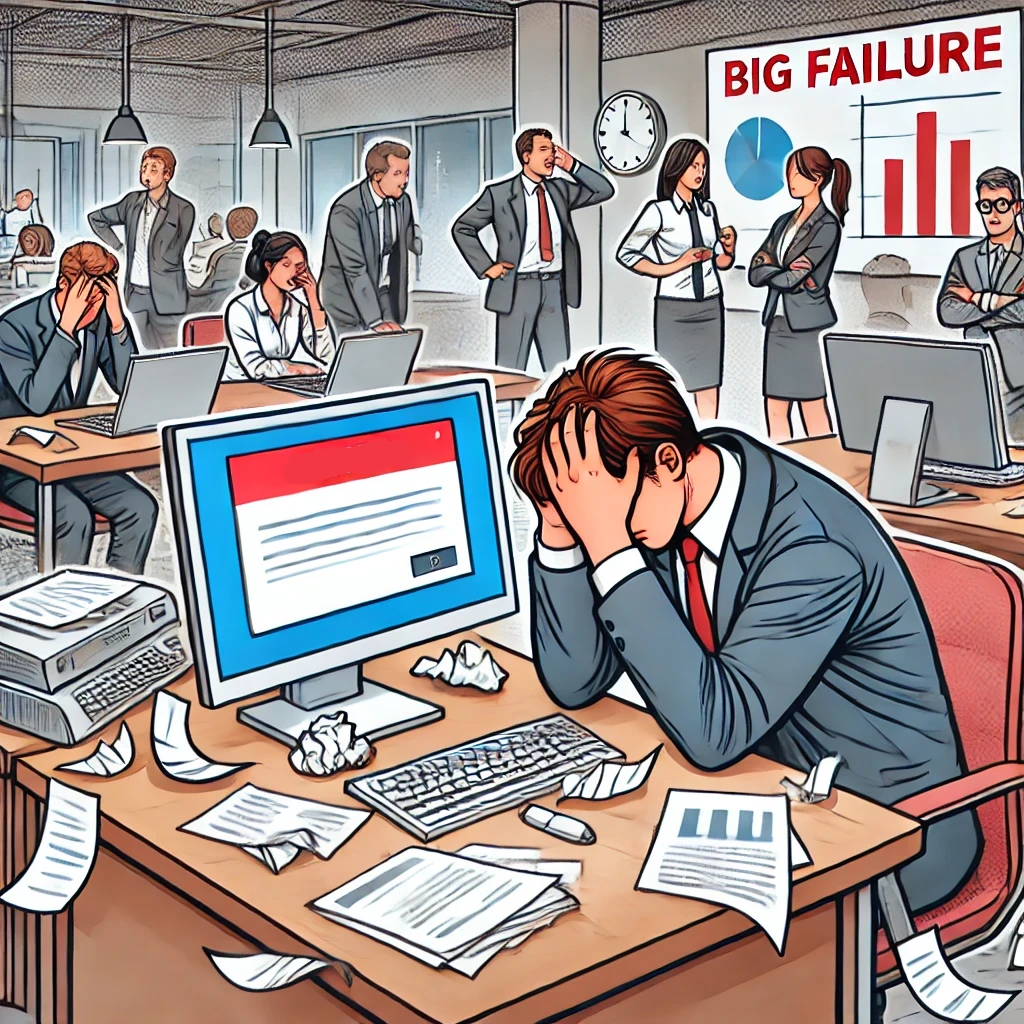
Failure is crucial because it is one of the most powerful catalysts for learning, growth, and innovation. While no one enjoys failing, the process of failing teaches us lessons that success alone often cannot. Let’s break down why failure is so essential.
1. Failure Spurs Learning
At its core, failure teaches us valuable lessons that success might obscure. When things go wrong, we are forced to evaluate our actions, decisions, and strategies. This reflection helps us identify weaknesses, blind spots, and areas for improvement. It’s through these realizations that we grow.
Think about it: when we succeed, we may not stop to consider why things went well, but when we fail, we have no choice but to analyze the situation. This is where true learning happens. Failure pushes us to ask important questions like, What went wrong? What could I have done differently? These questions lead to deeper understanding and ultimately help us improve.
2. Failure Builds Resilience
Failure is a test of resilience. It challenges us to confront disappointment, frustration, and adversity, which can be uncomfortable and difficult. But this discomfort is what builds mental toughness and perseverance. Every time we fail and get back up, we’re training ourselves to handle setbacks with greater ease in the future.
Resilience is a crucial trait in any aspect of life. Whether in personal goals, professional ambitions, or relationships, we will inevitably face difficulties. Learning to navigate failure without giving up builds inner strength, which is vital for long-term success.
3. Failure Promotes Innovation
Innovation often stems from a series of failures. Many of the greatest inventions, breakthroughs, and creative achievements have come after multiple attempts and setbacks. Failure forces us to think outside the box and explore new ways of doing things. It sparks creativity because it encourages us to look for alternatives when the current approach isn’t working.
Thomas Edison, for instance, famously said, “I have not failed. I’ve just found 10,000 ways that won’t work.” His perspective highlights the role of failure in the process of innovation. Without failure, many of the world’s most important discoveries and advancements wouldn’t have been possible.
4. Failure Cultivates Humility
When we experience success, it’s easy to feel invincible, but failure keeps us grounded. It reminds us that we are human, that we make mistakes, and that there is always room for improvement. This humility is essential for personal and professional growth because it allows us to be open to feedback, collaboration, and continuous learning.
People who understand the value of failure tend to be more empathetic and less arrogant, which makes them better leaders and collaborators. Failure helps us connect with others on a deeper level because we realize that everyone, no matter how successful, has struggled and learned from their mistakes.
5. Failure Helps Define Success
Failure helps us redefine what success means to us. It’s through the process of trial and error that we gain clarity on our goals, values, and priorities. Sometimes, failure forces us to pivot and change direction, leading us to discover paths we hadn’t considered before.
For example, someone might pursue a career in a certain field, only to fail and realize that their true passion lies elsewhere. Without that failure, they might never have explored other opportunities or discovered their true calling. In this way, failure is often a stepping stone to a more authentic and fulfilling version of success.

6. Failure Encourages Accountability
When we fail, we are forced to take responsibility for our actions. This accountability is crucial for personal growth because it encourages self-awareness. It makes us ask, What could I have done differently? How did my choices impact the outcome? Taking ownership of our failures teaches us to make better decisions in the future.
Accountability also promotes a growth mindset—the belief that abilities and intelligence can be developed through dedication and hard work. Instead of seeing failure as a reflection of inherent flaws, people with a growth mindset see it as an opportunity to learn and grow.
7. Failure Sets the Stage for Greater Success
Failure often precedes success because it provides the foundation for improvement. People who are willing to embrace failure and learn from it are better equipped to achieve long-term success. The obstacles they face early on help them build the skills, knowledge, and resilience needed to overcome challenges later.
In fact, many successful individuals have spoken about how their failures laid the groundwork for their future achievements. Oprah Winfrey was fired from her first television job, Steven Spielberg was rejected by film school multiple times, and J.K. Rowling faced numerous rejections before Harry Potter was published. In all of these cases, failure was a necessary step on the road to eventual triumph.
8. Failure Fosters Adaptability
Life is unpredictable, and failure teaches us to be adaptable. When our initial plans don’t work out, we are forced to reassess and try new approaches. This adaptability is crucial not only in professional environments but also in personal relationships and life in general. The ability to adjust, pivot, and embrace change is often what separates those who succeed from those who give up.
Adaptability also makes us more resilient in the face of future challenges. Once we’ve faced and overcome failure, we become more confident in our ability to handle whatever life throws at us.
9. Failure Develops Problem-Solving Skills
When we fail, we are confronted with the need to find solutions. Whether it’s in business, academics, or personal endeavors, failure forces us to think critically and creatively. It pushes us to ask, What went wrong, and how can I fix it? This problem-solving process helps develop crucial skills that can be applied to future challenges.
Problem-solving isn’t just about fixing immediate issues; it’s about developing the ability to approach complex situations with confidence and a clear strategy. Failure gives us the opportunity to refine these skills in real-world scenarios.
10. Failure Builds Character
Finally, failure shapes our character. It challenges our perseverance, our humility, our adaptability, and our problem-solving abilities. Overcoming failure strengthens our resolve and helps us become more empathetic, patient, and resilient.
The way we handle failure often defines who we are as people. Do we give up when things get hard, or do we press forward? Do we blame others, or do we take responsibility? Do we hide from our mistakes, or do we learn from them? These are the defining moments that shape our character.
Conclusion: Failure as a Necessary Component of Success
Failure, while painful and difficult, is absolutely crucial to growth and success. It teaches us lessons that success cannot, builds resilience, promotes innovation, and helps define what success truly means. It fosters adaptability, accountability, and problem-solving skills while shaping our character and preparing us for future challenges.
The key is to view failure not as the end, but as part of the process. Those who can embrace failure, learn from it, and use it as a stepping stone are the ones who ultimately succeed in the long run. So, the next time you face a setback, remember: failure isn’t something to be feared—it’s something to be harnessed.

